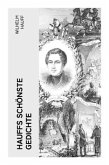Mary Shelley's "Frankenstein" stands as a pioneering work of science fiction, interweaving themes of creation, ambition, and the human condition within a rich gothic narrative. The novel is structured as a series of letters and first-person accounts, creating a layered storytelling technique that invites readers to explore the moral implications of Victor Frankenstein's obsessive quest for knowledge and the consequences of his hubris as he creates life. Set against the backdrop of the early 19th century, an era characterized by rapid scientific advancements and Romantic philosophy, Shelley's work challenges the boundaries between man and monster, nature and artifice, ultimately presenting a cautionary tale about the perils of unbridled ambition and isolation. Mary Shelley, born to radical thinkers William Godwin and Mary Wollstonecraft, was deeply influenced by the Enlightenment ideals of her upbringing, as well as the personal tragedy of losing her mother. Her tumultuous relationship with fellow writer Percy Bysshe Shelley, combined with her experiences in a society grappling with changing scientific paradigms, culminated in the creation of "Frankenstein." The novel was conceived during the famous summer of 1816 by Lake Geneva, a time marked by discussions of galvanism and the reanimation of lifeless matter, reflecting her incisive engagement with contemporary debates about the ethical boundaries of science. "Frankenstein" is essential reading for anyone interested in the interplay of ethics, science, and the human psyche. It provokes profound questions about responsibility and the quest for understanding that resonate deeply in today's technological landscape. Readers will find Shelley's masterful prose and intricate characterizations evoke a haunting reflection on what it means to be human in an ever-evolving world.








